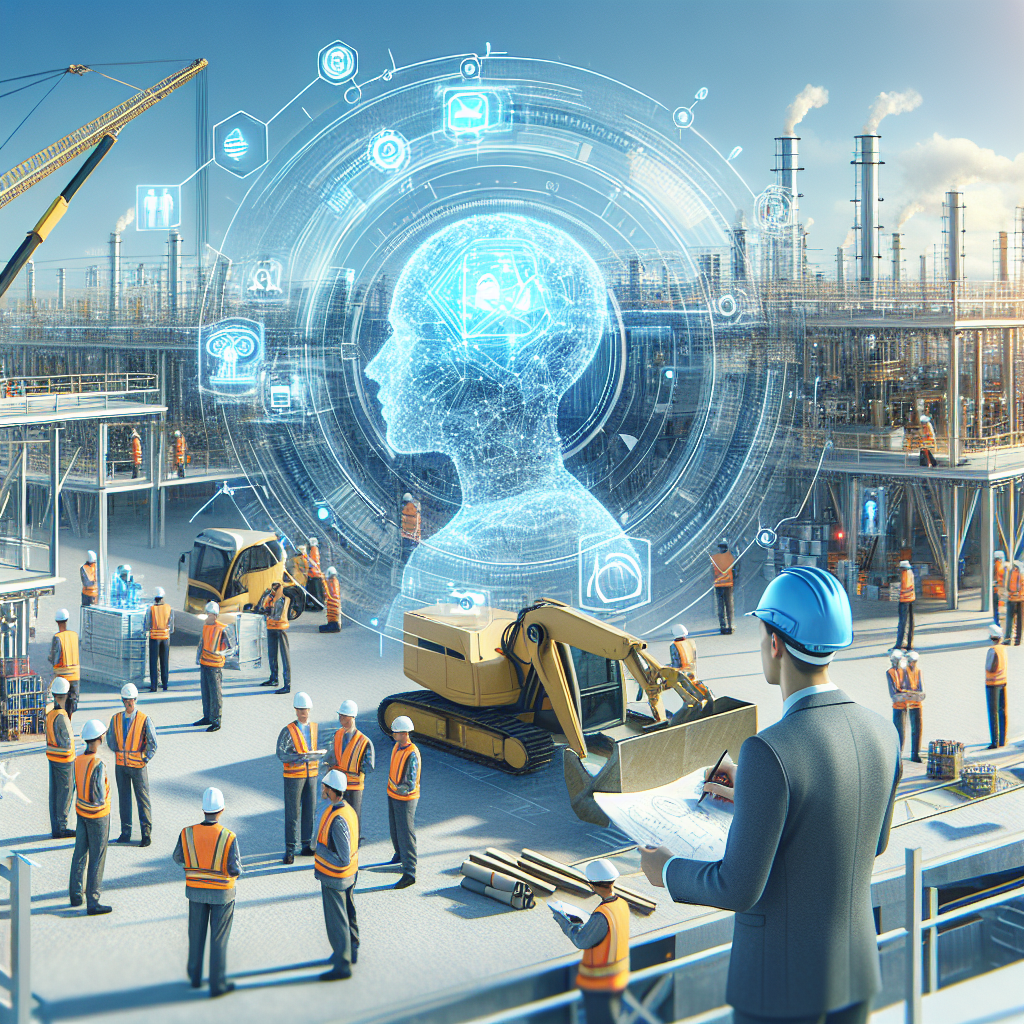The Future of AI in Project Health and Safety Management
Artificial Intelligence (AI) is revolutionizing the way businesses operate, and the field of project health and safety management is no exception. AI has the potential to improve safety outcomes, increase efficiency, and reduce costs in project management. In this article, we will explore the future of AI in project health and safety management and its potential impact on the industry.
AI in Project Health and Safety Management
AI has the potential to transform project health and safety management in several ways. One of the key benefits of AI is its ability to analyze vast amounts of data quickly and accurately. This can help project managers identify potential safety risks, predict future incidents, and take proactive measures to prevent accidents.
AI can also help project managers make more informed decisions by providing real-time data and insights. For example, AI-powered systems can analyze data from sensors and cameras on construction sites to detect hazards such as falls, slips, and trips. This information can then be used to alert workers and supervisors to potential risks and help them take corrective action.
Furthermore, AI can improve communication and collaboration among project teams. AI-powered chatbots and virtual assistants can provide project managers with instant access to important safety information, guidelines, and protocols. This can help ensure that all team members are on the same page when it comes to safety procedures and protocols.
AI can also help project managers optimize resource allocation and scheduling. By analyzing data on past projects and performance metrics, AI can help project managers identify areas where resources are being underutilized or where safety measures are not being followed. This can help project managers make better decisions about how to allocate resources and prioritize safety measures.
Overall, AI has the potential to revolutionize project health and safety management by providing project managers with real-time data, insights, and recommendations to improve safety outcomes and reduce risks.
Challenges and Considerations
While the potential benefits of AI in project health and safety management are significant, there are also challenges and considerations that need to be addressed. One of the key challenges is data privacy and security. AI systems rely on vast amounts of data to operate effectively, and project managers need to ensure that this data is secure and protected from unauthorized access.
Another challenge is the potential for bias in AI algorithms. AI systems are only as good as the data they are trained on, and if the data is biased or incomplete, the AI system may make inaccurate or unfair decisions. Project managers need to be aware of these potential biases and take steps to mitigate them.
Furthermore, there is a need for ongoing training and education to ensure that project managers and workers are comfortable using AI-powered systems. While AI has the potential to improve safety outcomes, it is important that project managers and workers understand how to use these systems effectively and ethically.
Finally, there is a need for collaboration and communication among stakeholders in the industry to ensure that AI is implemented in a way that benefits everyone. Project managers, workers, regulators, and other stakeholders need to work together to develop guidelines and best practices for using AI in project health and safety management.
FAQs
Q: How can AI improve safety outcomes in project management?
A: AI can help project managers identify potential safety risks, predict future incidents, and take proactive measures to prevent accidents. By analyzing data from sensors and cameras on construction sites, AI can help detect hazards and alert workers and supervisors to potential risks.
Q: What are the key benefits of using AI in project health and safety management?
A: The key benefits of using AI in project health and safety management include improved safety outcomes, increased efficiency, reduced costs, and better decision-making. AI can help project managers make more informed decisions by providing real-time data and insights.
Q: What are some of the challenges of using AI in project health and safety management?
A: Some of the challenges of using AI in project health and safety management include data privacy and security, potential bias in AI algorithms, the need for ongoing training and education, and the importance of collaboration and communication among stakeholders.
Q: How can project managers ensure that AI systems are used ethically and effectively?
A: Project managers can ensure that AI systems are used ethically and effectively by addressing potential biases in AI algorithms, ensuring data privacy and security, providing ongoing training and education, and fostering collaboration and communication among stakeholders.
In conclusion, the future of AI in project health and safety management is bright. AI has the potential to revolutionize the industry by providing project managers with real-time data, insights, and recommendations to improve safety outcomes and reduce risks. However, there are challenges and considerations that need to be addressed to ensure that AI is used ethically and effectively. By working together, stakeholders in the industry can harness the power of AI to create safer and more efficient project management practices.

